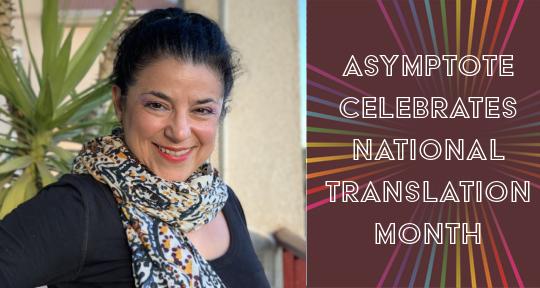Secret Dreams in Istanbul is a fascinating Turkish novel by Nermin Yɪldɪrɪm, published at the end of last year by Anthem Press. Before I go any further, I must confess that I am the book’s translator, but I would want to share it even if that weren’t the case. Only very occasionally does one come across a book that leaps out from all others and lodges itself in one’s mind. When that happens, it mustn’t be taken lightly.
March 8 was International Women’s Day, and it strikes me as a very apt time to talk about this novel, given that it draws attention to so many issues that are relevant to the battles women have been fighting for over a century to combat injustice. These themes include domestic violence, forced marriage, feigned virginity, self-induced abortion, physical and social inequality, and, more broadly, the condition of being a victim. In varying degrees, all of the characters in this novel are victims: of their gender, their social class, their biological clock, their complexes, social taboos, social expectations, their physical, intellectual and financial limitations, and of their own family. This is a book in which the weak are oppressed by the strong: it’s about facing up to one’s insecurities and confronting one’s demons; it’s about the age-old problem of sibling rivalry. And running parallel to all of these conflicts is the other key theme in the novel—the role of memory in the human psyche.
To use a somewhat frivolous simile, if you have a diamond necklace, you wouldn’t leave it locked away in a drawer where nobody can appreciate it when it could be displayed for all the world to see. I am a translator in the very privileged position of making it possible for Anglophones to enjoy the literature of other languages, and I felt the need to share this particular gem. For that reason, I decided to translate the book and to now write of why I regard the book so highly, as well as the process of translating it.
I first encountered Ruyalar Anlatɪlmaz (as it is called in Turkish) in 2012 when I was commissioned to translate a section (the first seventy pages). It moved me very deeply; I knew there would be elements of this book that would stay with me forever. But it wasn’t until 2016 that I received the go ahead (at my instigation) to translate it in its entirety.
This is Nermin Yɪldɪrɪm’s second novel. She has since written another five, all of them very fine and more successful than this one. Yet it was Secret Dreams in Istanbul that I felt compelled to translate. Whilst re-reading it, four years after my initial reading, I was taken aback to discover it was almost unnecessary to keep reading because I remembered practically every word. I don’t recall that ever happening to me, either before or since.
To briefly summarise the plot, Pilar, the novel’s Spanish protagonist, returns from work one evening to discover that her husband, Eyüp, has suddenly and inexplicably disappeared from the home they share in Barcelona. She learns from the police the following morning that he has boarded a plane for Istanbul, the city of his birth that he has not visited since he left it almost two decades previously. Mystified as to what could have provoked such uncharacteristic behaviour, and assailed by her own insecurities, she decides to follow him there and bring him back. Packing a tiny bag with just a few clothes and the dream diary that Eyüp’s psychologist has asked him to keep (in an attempt to get to the bottom of what has been disturbing his sleep), she sets off for Istanbul, where she will embark on a journey of painful discovery. Meeting Eyüp’s dysfunctional family, from which he has been as good as estranged since before she has known him, and his friends, and seeing for the first time the city where he grew up, she pieces together the clues to uncover the horrifying truth about what drove Eyüp away. READ MORE…


